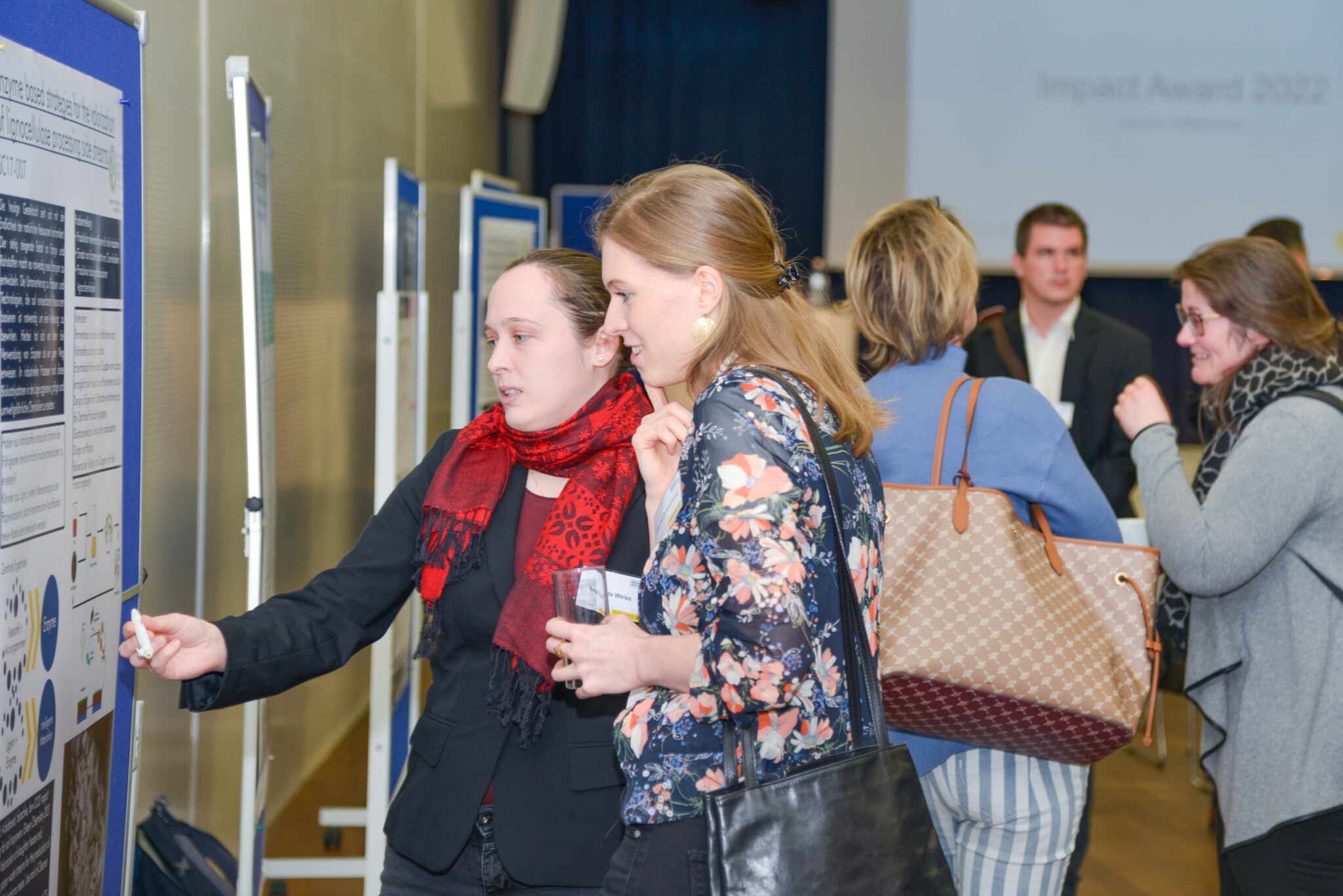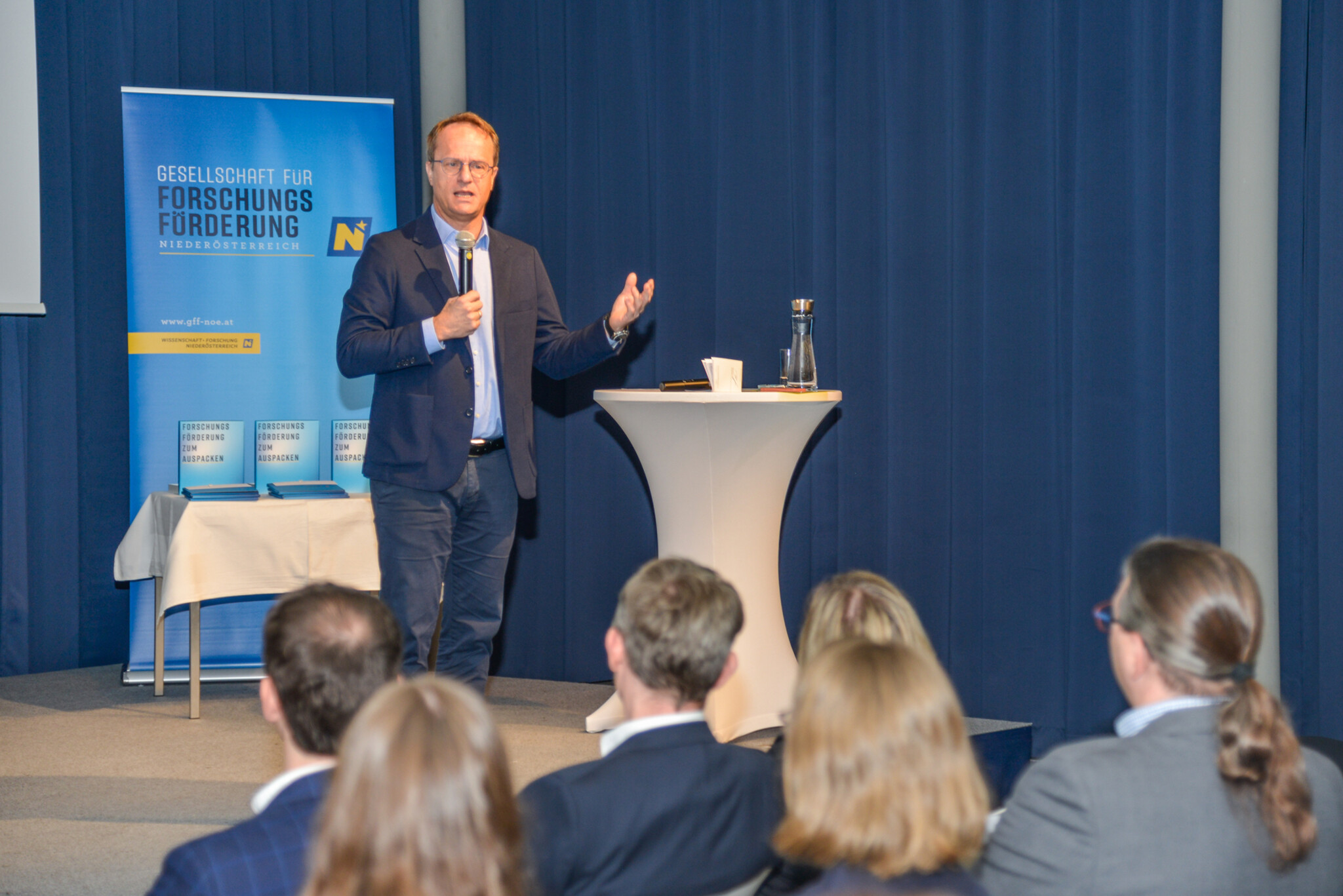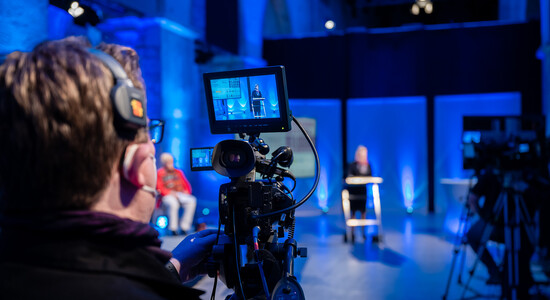Impact Award 2022 was awarded
f.l.: Carmen Rehm, Christoph Preimesberger, Barbara Schwarz, Katharina Auer-Voigtländer, Kathrin Bieber Merle, Walter Kuba, Renate Weiß
On November 17, the Impact Award of GFF NÖ was presented for the first time to PhD students with the most relevant, completed research projects.
Five scientists from the fields of environmental biotechnology, social sciences, art sciences, nanotechnology and health sciences presented their research projects from the Science Calls 2016 and 2017 as an “elevator pitch” to an expert jury. The most convincing was synthesis chemist Walter Kuba with the presentation of his project “The perfect match - Tools for controlling molecules in living systems.” The molecule, which was newly developed in his dissertation and has already been patented, belongs to the next generation of trans-cyclooctenes and outperforms the TCO investigated in the clinical phase by orders of magnitude. Therefore, it is a promising candidate for the development of diagnostic and therapeutic platforms in the fight against malignant diseases. Walter Kuba wrote his dissertation at the Austrian Institute of Technology and is now working at the Vienna University of Technology.
Second place went to Renate Weiß of the University of Natural Resources and Applied Life Sciences, who was able to positively answer the following research questions in her dissertation: “Do enzymes produced from waste materials have the capabilities to replace conventional industrial chemicals and can new materials be developed from lignin, a by-product of the paper industry, through enzymatic modification?”
The broad spectrum of funded scientific research work was further expanded with the 3rd place dissertation by Katharina Auer-Voigtländer from the University of Applied Sciences St. Pölten. In her research project, she investigated arrival processes and subject positioning of refugee migrants in the European asylum system using Austria as an example.
In addition to the already completed science projects that were funded by GFF NÖ during the Science Calls 2016 and 2017, posters of still ongoing projects of the Science Calls 2018 and 2019 were presented. The first to third prize for the most impactful poster went to Carmen Rehm, whose work traces Vibrio cholerae bacteria in Lower Austria’s bathing ponds, Christoph Preimesberger, who investigates the size-dependent spontaneous combustion behavior of wood, and Kathrin Merle Bieber, who looks at the wearing of traditional costume by Jews as a representation of belonging in Vienna and Lower Austria between the advent of Sommerfrische and 1938.
Wolfgang Renner (Head of Wiener Zeitung Academy) and Leo Capari (Technology Transfer Manager at tecnet equity NÖ Technologiebeteiligungs-Invest GmbH) could be won for the jury. The event was moderated by science journalist Ruth Hutsteiner (ORF Wissenschaft).
Geneticist and Chairman of the Supervisory Board of GFF NÖ Markus Hengstschläger inspired the audience with his trenchant keynote speech and called on the scientists to set the bar high for their research goals. Environmental biologist and award winner Renate Weiß from the University of Natural Resources and Applied Life Sciences took this call as an opportunity and made the audience and the jury sit up and take notice with her research goal of developing car tires that are environmentally compatible in the future.

Renate Weiß and Claudia Gusenbauer discussing a scientific poster

Markus Hengstschläger encourages the young researchers to reach for the stars.

